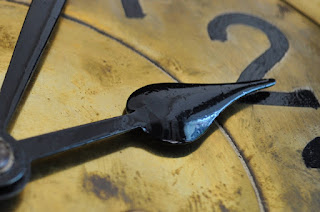First of a two-part series.
There are many people who claim that the mental condition known as Attention Deficit Hyperactivity Disorder does not exist. I do not argue with these people because it is seldom useful to do so. Instead I try and find some common ground with them.
A phenomenon I find fascinating that was brought about (I’m assuming) by the internet, is known as “TFW” which is an acronym standing for “that feeling when”. It is followed by some event or experience that the person hopes others share. Another title is “so relatable”. I say it is likely the advent of the internet that brought this into existence because I don’t know if people shared things like this before Facebook and Twitter. At least not as widely.
I’ve seen many posts along these lines and empathized with a lot of them. None so much as the ones I share below which I associate with my ADHD brain. It doesn’t really matter, in the end, if it is ADHD or not. If one were to view it in that light, however, one might gain insight into the prevalence of individuals currently struggling with symptoms ADHD treatment is designed to ease.
A lot of people with ADHD have this stubborn streak about them. Combined with a need to have everything they do be their own idea, and never, ever follow The Instructions, you end up with this post. As far as I know, it is not properly understood why this happens, but just try and tell someone with ADHD what to do and let me know how it goes.
Being proactive is a good way to combat this. Asking what they need to do before it is asked of them. When the ADHD brain feels in control, like it was their idea, they can avoid this feeling.
This post also mentions the phenomenon of the post above, but goes a bit further. Pressure is a highly delicate and sensitive thing for ADHD. If there isn’t enough we find it difficult to engage our brains (such as a deadline of “whenever you get around to it”) and if there is too much we simply shut down entirely (such as an imminent deadline of dire consequences). The feeling of an empty house is a welcome release from the pressure of other people’s expectations and allows ADHD to thrive on the novelty of self-direction. Being left to their own devices too long results in the vacuum of pressure that also precludes productivity.
The real trick is to come to a balance of input and/or accountability from trusted loved ones and the freedom of self-direction. On a day when I knew I wanted to clean I posted on Facebook about that intention and asked my friends to text me around supper time asking about it. The idea to clean was mine and the fact that I knew others would be asking helped to motivate without overloading me with pressure.

Stubbornness once more rears its head. This might even be viewed as Oppositional Defiance Disorder which has a 50% comorbidity diagnosed with ADHD in children. People with ADHD can defy instructions, even to the detriment of others and themselves. When emotions overwhelm the human brain we can lose the ability to access our centers of reason and logic. Known as an “Amygdala hijack” this can happen to almost everyone, ADHD or otherwise, but can be more common with ADHD because our emotions are so much more intense and harder to control. This can make it difficult or impossible to rationally decide what action on our part will result in the best outcome. A qualified professional can, in many cases, assist with processing strong emotions such as anger.

The effort involved in even the simplest tasks of day-to-day living is enormous for ADHD (especially before diagnosis and treatment). Accomplishing 1 item on a to do list can take a lot of energy, especially if, as is very common, the individual has made a list that cannot possibly be finished in the allotted time. Being unable to accurately predict how long any given task will take is another facet of time blindness that is also associated with ADHD.
Breaking down a to do list into smaller chunks is one strategy. Instead of “clean my room” instead consider “make bed”, then “pick up only clothes”, then “clear desk”. This can also help to more accurately predict the length of time needed for the work.
They say “If you want something done, give it to a busy person.” This doesn’t always hold true with ADHD. A lot of us are very anxious to please and make the people around us happy. We have a hard time saying “no” even when we know we cannot take on anymore work. This means we over-promise and under-deliver, causing us to feel badly about ourselves and tarnishing our reputations at work, with family, and in social groups.
I perpetually try to reverse that harmful tendency. I under-promise in order to over-deliver. Whatever deadline I think I can meet I usually double, just to be safe. If the task or project has no deadline I make it clear to the other person that I will do my best to get at it but that it may take some time. Nine times out of ten the other person will be happier to have the project delivered before the longer deadline than after the shorter one. If someone appears unhappy about the time, an explanation of the reasoning can show the goodwill and ease any concerns. “I have ADHD, so to make sure I don’t blow past a 1 week deadline, I’ve told you 2 weeks, and you’ll probably get it in ten days, but I don’t want to promise something and then fail to deliver.”

ADHD can remain disguised for many years by circumstance and coping mechanisms created to hide abnormality. There has been a spike in middle-aged individuals being diagnosed alongside their children because they looked at the list of symptoms and said “Wait... Everyone isn’t like this?” A lot of people with ADHD manage more or less effectively until a sudden increase in responsibility or a crisis throws them into chaos. Common events are entering grade 9, beginning college or university, moving out of parents’ house, or starting a family.
ADHD is one of the most treatable mental disorders. There are many resources and professionals available to help anyone curious about everything from diagnosis criteria to medication to nutritional treatments. When someone is living with undiagnosed, untreated ADHD they may feel as though they are lazy, stupid, and crazy. This is not the case and there is always, always hope.














